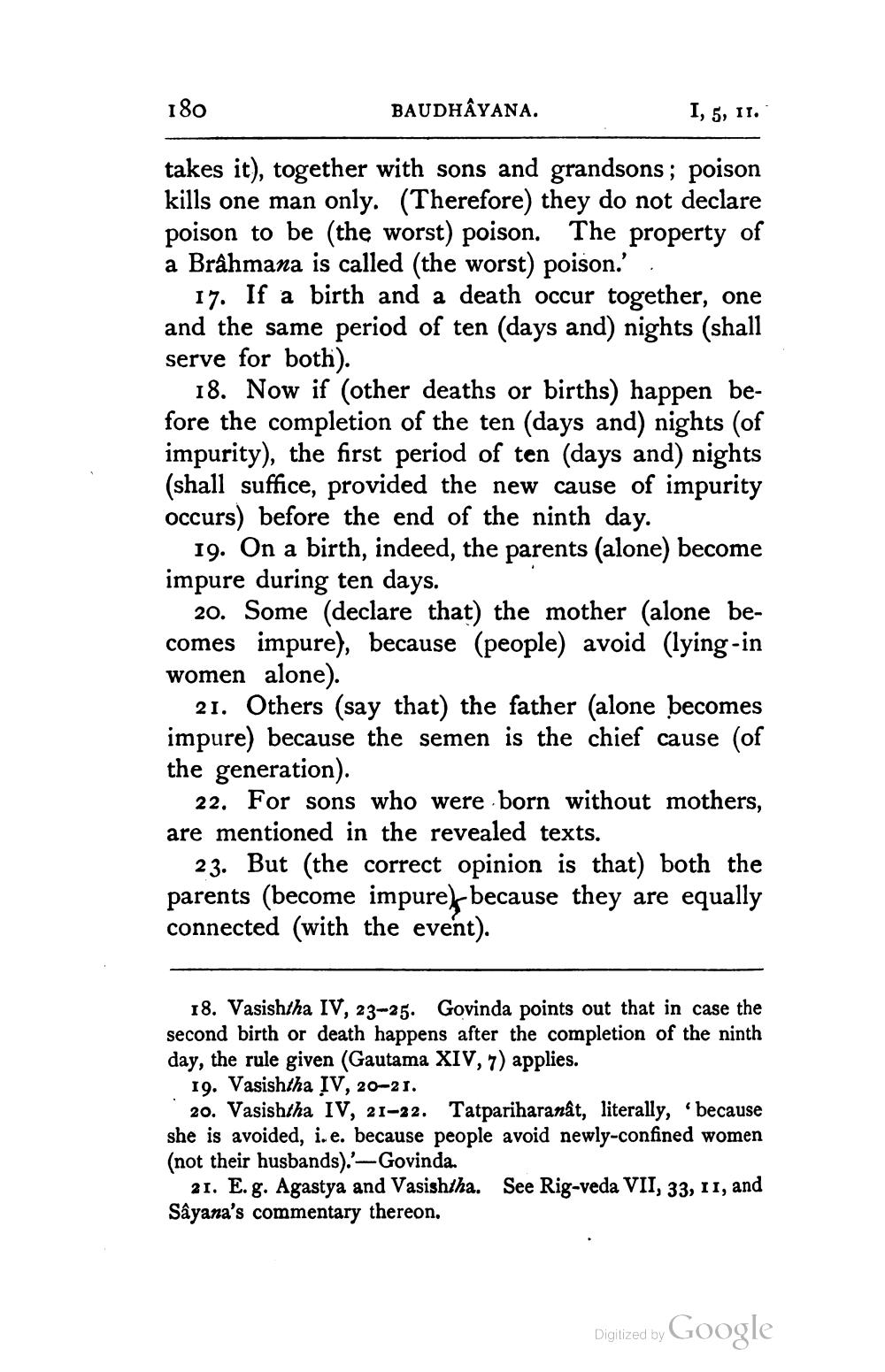________________
180
BAUDHẤYANA.
1, 5, 11.
takes it), together with sons and grandsons; poison kills one man only. (Therefore) they do not declare poison to be (the worst) poison. The property of a Brâhmana is called (the worst) poison.'
17. If a birth and a death occur together, one and the same period of ten (days and) nights (shall serve for both).
18. Now if (other deaths or births) happen before the completion of the ten (days and) nights (of impurity), the first period of ten (days and) nights (shall suffice, provided the new cause of impurity occurs) before the end of the ninth day.
19. On a birth, indeed, the parents (alone) become impure during ten days.
20. Some (declare that) the mother (alone becomes impure), because (people) avoid (lying-in women alone).
21. Others (say that) the father (alone becomes impure) because the semen is the chief cause (of the generation).
22. For sons who were born without mothers, are mentioned in the revealed texts.
23. But the correct opinion is that) both the parents (become impures because they are equally connected (with the event).
18. Vasishtha IV, 23-25. Govinda points out that in case the second birth or death happens after the completion of the ninth day, the rule given (Gautama XIV, 7) applies.
19. Vasishtha IV, 20-21.
20. Vasishtha IV, 21–22. Tatpariharanât, literally, because she is avoided, i.e. because people avoid newly-confined women (not their husbands).'--Govinda.
21. E. g. Agastya and Vasishtha. See Rig-veda VII, 33, 11, and Sâyana's commentary thereon.
Digitized by Google




